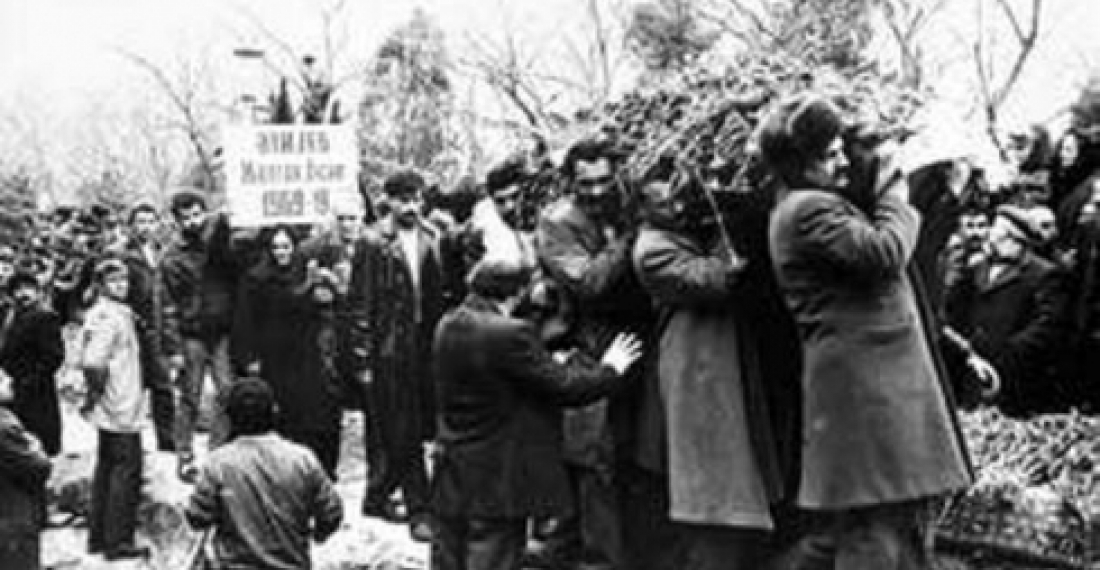Azerbaijan is commemorating the events of 20 January 1990 when thousands of Soviet troops entered Baku and violently put down street protests that had been going on in the city. 137 people were reported killed, 744 wounded and 841 were arrested. Earlier the Soviet Government had declared a state of emergency in Baku and tried to cut all communication links between the city and the outside world.
The event is recognised as one of the darkest days in the period that led to the eventual collapse of the Soviet Union. The last Soviet leader, Mikhail Gorbachov in 1995 was quoted as saying that “Proclaiming the state of emergency in Baku and sending army to the city was the biggest mistake of my political life...”
Many of those dead now lay buried in a special "Alley of Martyrs" in the centre of Baku. Government and Political leaders will visit the "Alley of Martyrs" throughout the day to honour the fallen.
source: commonspace.eu
photo: The burial of some of those killed on 20 January 1990 in Baku at the Alley of Marthyrs (archive picture)







